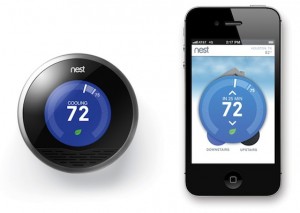Cold This Winter? Maybe It’s Time for a Nest.
-
-
slice.mit.edu
Filed Under
Recommended
At MIT, Matsuoka met Professor Rodney Brooks at the Computer Science and Artificial Intelligence Laboratory and found a greater cause: optimizing robotics to help disabled people. There, Matsuoka developed a theory on machines and robotics: “You need to let them learn what you’re bad at,” she says. 
Now, Matsuoka has applied that theory to energy. As VP of technology for Nest, she has developed the Nest Learning Thermostat, an easy to use, self-learning device that gets to know you and your home and how to heat or cool it most efficiently.
Since coming to market in 2011, Nest has saved billions of dollars in energy bills for thousands upon thousands of households around the world. This fall, Nest announced that the thermostat, which retails for $249, was in close to 1% of U.S. homes (about 1.1 million) and was endorsed by 20 U.S. utility companies.
Last week, Ellen DeGeneres even gave viewers an on-air tutorial on how Nest works.
Employing Matsuoka’s theory, Nest learns to do what people are bad at: turning off or reducing their energy systems when they’re away from home. The thermostat’s algorithms learn the patterns of each user and adjust schedules based on how the user turns up or down the heat (or AC) in the first few weeks of use.
When away from home, users can employ Nest’s smartphone app to change settings or monitor the temperature. The app also produces reports on energy usage and makes recommendations.
This year, Nest added a smoke and carbon monoxide detector to its catalog of smart devices for the home, one which is selling tens of thousands of units each month. Nest's CEO, Tony Fadell, knows a thing or two about smart devices, having worked on eighteen generations of the iPod and three of the iPhone at Apple.
“We’re now sitting at the intersection of machine learning and human learning,” says Matsuoka. “I’m extremely interested in enhancing human ability in allowing them to achieve what they want, utilizing machine learning to enhance lives.”
For those who fear the Internet of things–objects being smarter than people or machines running amok and ruling the world, Matsuoka offers this simple rule: “People who want to share more to get more should be able to opt in to [devices] like this. Those who want to withhold data should be able to withhold it. Give that freedom and power to the person to decide. We can do this right.”
Update 1/13/14: Google acquired Nest in January 2014 for $3.2 billion in cash.







